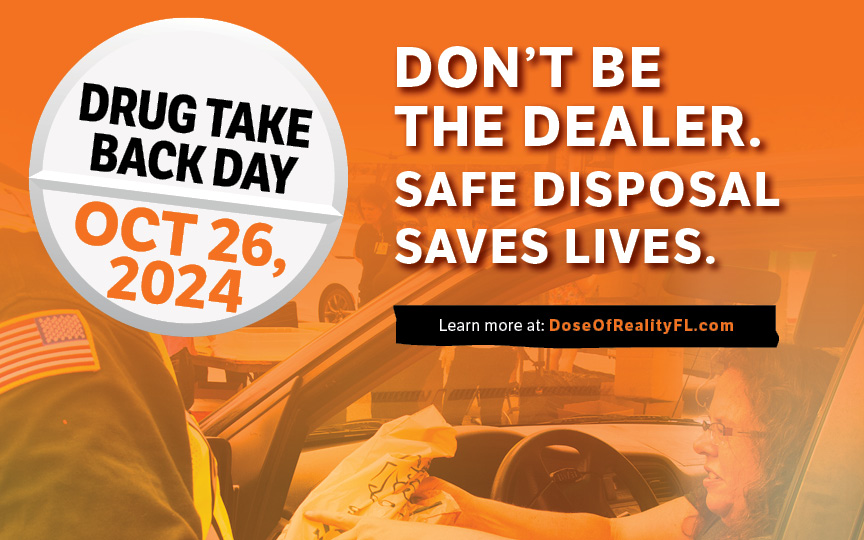Young people ages 12-25 are a very high-risk group for misusing opioids. While Middle and High School addiction rates thankfully remain low overall in Florida according to the Florida Youth Substance Abuse Survey for 2023, there are still too many of our children reporting using prescription drugs without a prescription, or differently than how they were prescribed.
Is Your Student or Athlete at Risk?
If you notice one of your students or athletes has begun losing interest in school or their sport, or both, or just generally withdrawn, depressed, hostile or fatigued for no apparent reason, it is important to know that while these behaviors are not atypical for teens, they are very often strong indicators for substance misuse.
Educators and coaches can pick up on other signs that could mean your student or athlete is at risk:
- Become increasingly secretive or make excessive attempts to be alone
- Items suddenly missing from your school, office or gym or money stolen from your wallet
- A decline in school performance, practice/game performance, or attendance
- Consistently late to school, practice, and/or games
- A “new” group of friends
- Becoming distant from other team members
- Changing relationships with family and friends
- Intermittent nodding off in class
Be on the lookout and learn the slang and the abbreviated language kids and teens may use while texting, posting on social media platforms, or emailing others which may mean your child is either at risk or has already begun using drugs.
- DOC = Drug of Choice
- PAL = Parents are Listening
- BRB = Be Right Back
- P911 = Parent Alert
- KPC = Keeping Parents Clueless
What Educators and Coaches Can Do
- Understand the risk factors for misuse of painkillers, including prescription cough syrups: stress over school work or exams, trouble with friends, depression, anxiety
- Talk with your students, your athletes, and parents about the risks and dangers of prescription painkillers, especially opioids (as well as other narcotics).
- Encourage parents and students/athletes to ask healthcare professionals for non-narcotic painkiller alternatives if prescribed.
- Let parents and students/athletes know that you will stand by them and offer support if they need it.
- Review your school’s policies on drug use and encourage administrators and other educators and coaches to consider updating them to include use and/or misuse of narcotic painkillers.
- Watch students/athletes for signs of misuse or addiction and speak to the parents or legal guardian of the student/athlete.
- Learn to recognize the potential signs of drug impairment and know the proper steps to take if you suspect one of your students is impaired.
Resources
- Get smart about drugs and learn more from this DEA Resource for Parents, Educators & Caregivers
- Search for lessons and activities for use in the classroom
- Prevent drug use among children and adolescents
- Get facts about misuse, addiction and treatment
- National Institute on Drug Abuse for Teens
- Start a discussion with the younger generation for youth opioid abuse prevention: consult this discussion guide.
Materials
Use these Talking Points to discuss the dangers of opioid misuse with your students/athletes.
